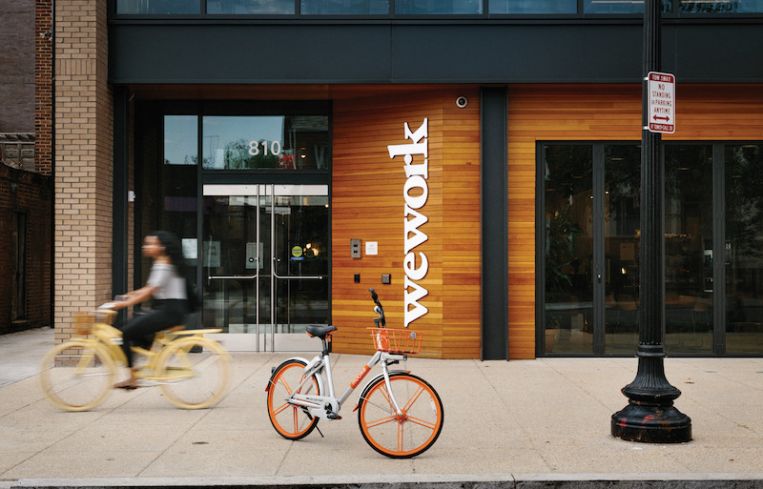WeWork Awarded First $10M Federal Coworking Contract
By Celia Young August 26, 2021 1:34 pm
reprints
The U.S. General Services Administration (GSA) — the federal agency responsible for finding workspaces for government employees — has contracted WeWork and four other coworking providers for $10 million to provide flexible office space to government agencies and workers.
The deal, announced Thursday, represents the first foray into coworking for the federal government, which is the largest occupier of office space. WeWork may use its existing properties when the government puts in a request for space, or find new locations to react to the GSA’s needs as they come up, said Dan Mathews, WeWork’s head of federal sales.
“WeWork has a very strong value proposition for the government,” Mathews told CO. “The government is embracing telework on a much larger scale than it did before. It has made a massive investment in the technological capability for remote work and telework … WeWork really has unparalleled abilities [and] capabilities to meet those mission requirements.”
The four other companies awarded the contract alongside WeWork are EXPANSIVE, The Yard, Deskpass, and LiquidSpace, according to a source familiar with the deal.
The contract, which closed last week, is for one year with the option to renew for four additional years. WeWork or one of the other contractors are paid when they’ve secured space for public employees, said Mathews.
The contract comes after two years of ire for the coworking company, which has seen net losses jump to $888 million in the second quarter of this year, a lawsuit over its initial public offering, further suits from landlords, revelations that its former CEO extracted billions from the company during his tenure, as well as a global pandemic that emptied out its spaces and a fast-spreading delta variant that is pushing companies return-to-work plans back.
While telework isn’t going anywhere, the delta variant has concerned office providers, as businesses seek out shorter and more flexible leases. WeWork’s recovery from the pandemic has been slow, and the company saw another dip in second-quarter revenue in August. But Mathews said that, while delta adds uncertainty to the market, it makes a flexible office solution more attractive to employers.
“This is where this contract, I think, is really important, because the traditional solutions that the government has, [like] traditional longer-term leases and government ownership, just aren’t very flexible,” said Mathews. “The delta variant adds uncertainty, and that just really drives for a flexible solution to manage that risk that comes with the uncertainty.”
WeWork will work with the government to ensure the security of government employees, including adding security guards, a reception area and data privacy measures, said a spokesperson for the company.
Celia Young can be reached at cyoung@commercialobserver.com.
Update: This story has been updated to name the other contractors.



